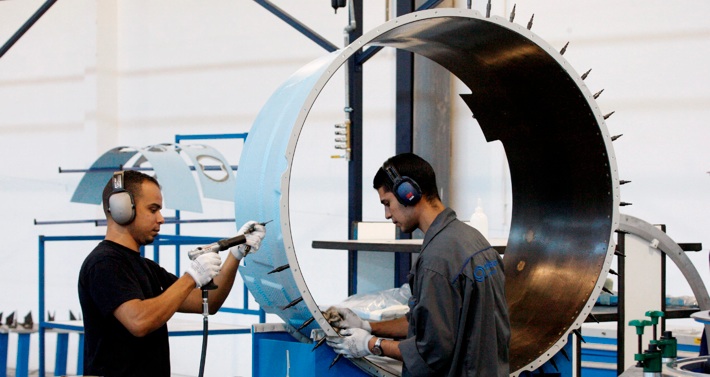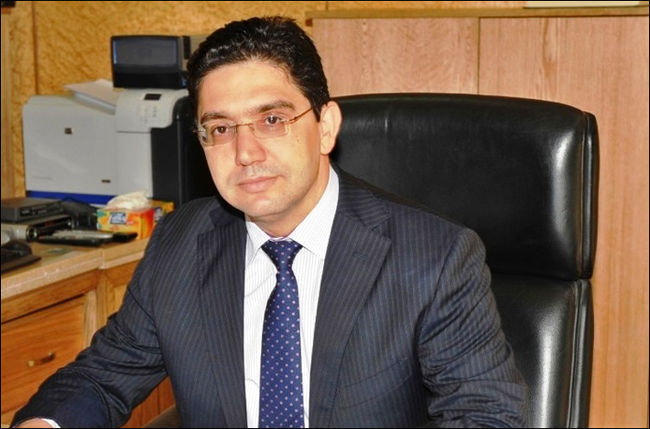MOROCCO IS TRAINING A WORKFORCE FOR ITS AERONAUTICAL SECTOR. PHOTO©LUDOVIC/REA
Companies want to play a central role in shaping curricula to ensure graduates have training that is adapted to the requirements of the job market.
On the afternoon of 11 September, not far away from Mohamed V airport in Casablanca, the Institut Spécialisé des Métiers de l’Aéronautique et de la Logistique Aéroportuaire (ISMALA) has an unusual buzz.
Students wearing their dark-blue overalls are conscientiously working on different pieces of aircraft, drilling, nailing and folding materials, making it hard to hear what the director of the institute, Abdelhadi Ben Mkaddem, is trying to say.
Today is a special day as the ISMALA has just received the Haas Technical Education Center certification, a first in Africa.
“There are around a hundred aeronautical companies in Morocco […] Having an international certification is a way to reassure investors about the quality of our workforce, therefore increasing the chance of attracting foreign companies and the number of jobs waiting for our students at the end of their training,” says Larbi Bencheikh, director of the Office de la Formation Professionnelle et de la Promotion du Travail (OFPPT), which – under the education ministry – oversees ISMALA.
In Morocco, where three quarters of the labour market is informal and 30% of young people are unemployed, matching education and the needs of the labour market is indeed a strategic question.
Across Africa, policy-makers are focusing more and more on the concept of skills. With the training institutes that the government and car manufacturer Renault have established, Morocco is ahead of its peers, many of which have not even begun to study the gap between the skills schools provide and the needs of employers.
In 2005, Morocco’s industry ministry launched its Emergence Plan, listing six priority sectors for the country’s development: off-shoring, automobiles, textiles, aeronautics, electronics and food processing.
This year, the government launched the Stratégie d’Emergence aux Ecosystèmes Performants, an updated version of the Emergence Plan, with one of its key objectives being the improvement of the skills provided by the education system.
When asked by The Africa Report how this consistency is going to be achieved, trade minister Moulay Hafid Elalamy explains: “A precise mapping of the training needs is being made through a quantification by sector, by profile, by region and by year, as well as through an inventory of the training available in Morocco.”
Coordinating the development of growth poles and providing adequate training is still in its early stages. For example, the aeronautics industry is projected to create an average of 1,500 new jobs each year until 2020, and ISAMA’s first class of aeronautical mechanics had 90 students in 2013.
At the Confédération Générale des Entreprises du Maroc, where Mohamed Slassi is the head of the commission on training, companies say that they must be at the heart of the government’s focus on skills, like in Singapore.
Slassi says: “1.6% of the national wage bill goes to the professional training tax. This is our money that is used by the OFPPT to offer proper training. It is only fair that we decide what kind of training is offered to our youth, as we are the ones hiring them.”
Jamal Belahrach, the chief executive of Manpower Morocco, shares the same opinion. “We need to be consulted more often. The education ministry should not be the one overseeing professional training, it is the companies that should be doing it,” he says, adding that what the country is lacking most is engineers, technicians and marketing experts.
Read the original article on Theafricareport.om : Morocco matches skills and growth sectors | North Africa
Follow us: @theafricareport on Twitter | theafricareport on Facebook





